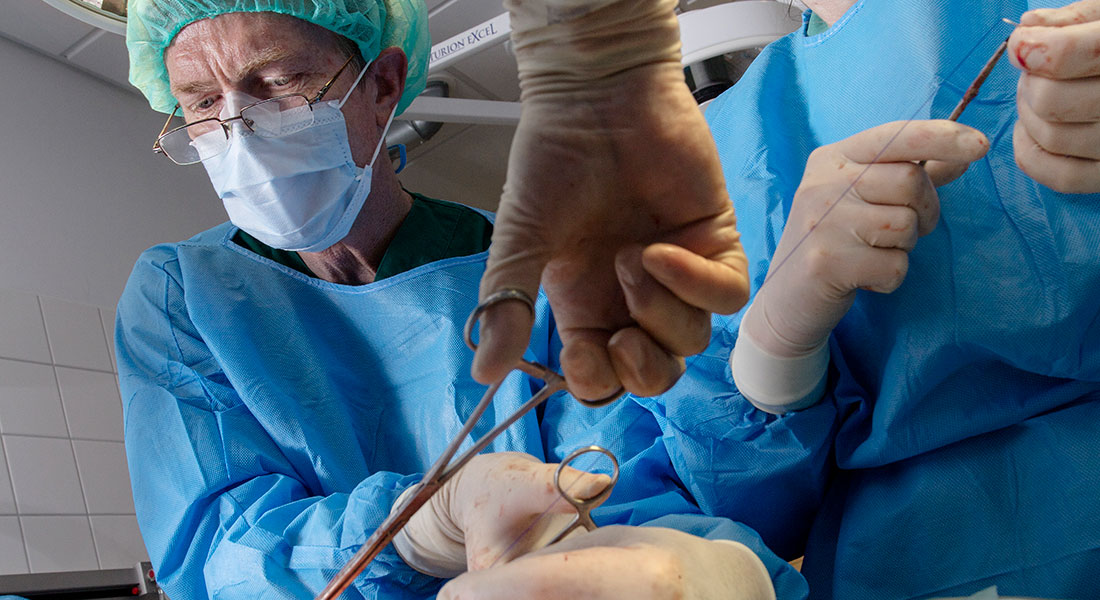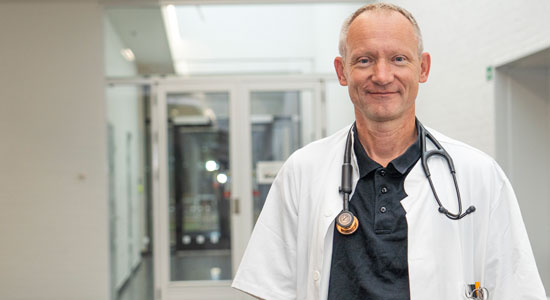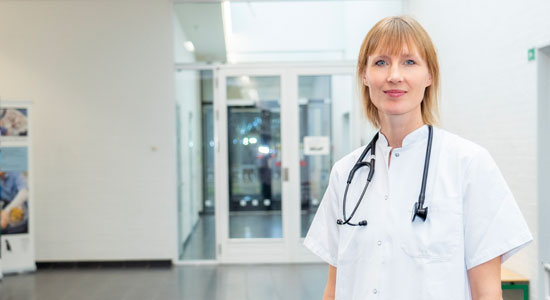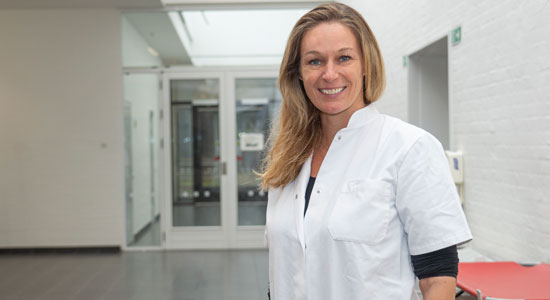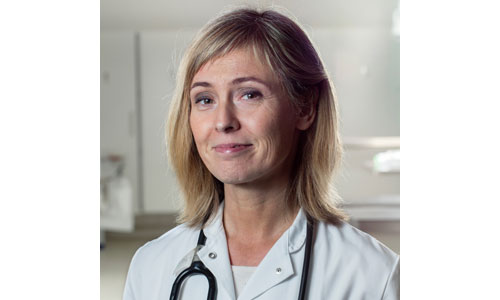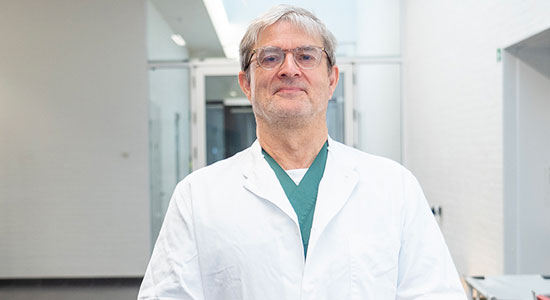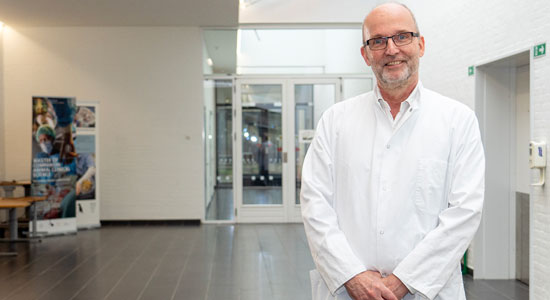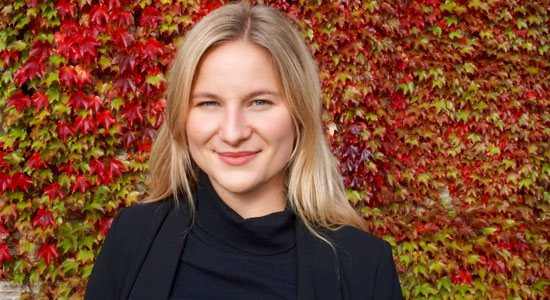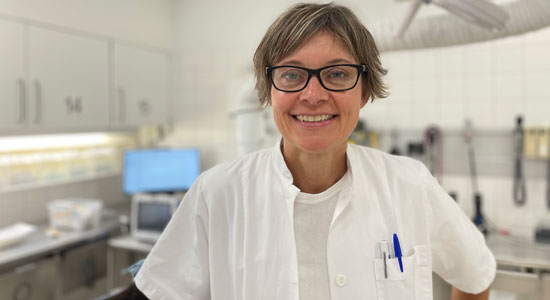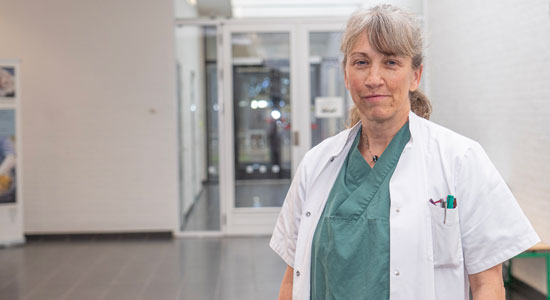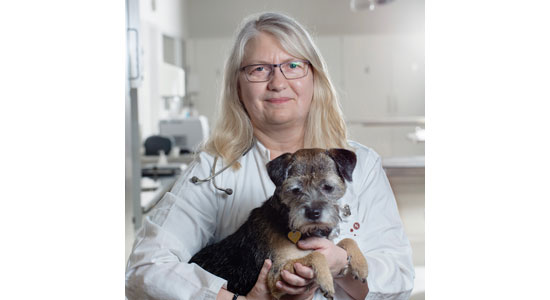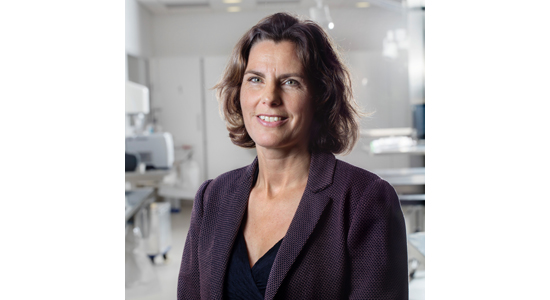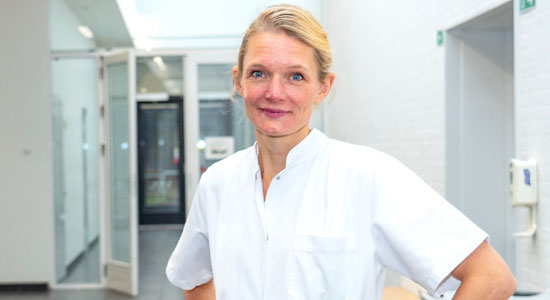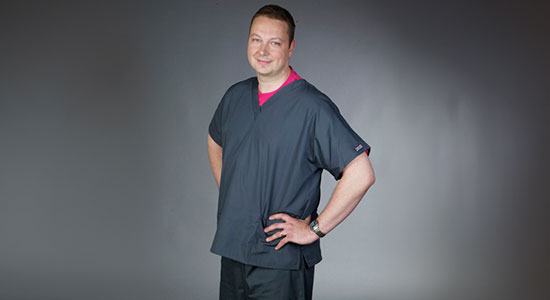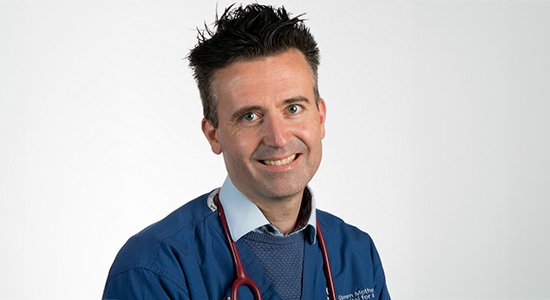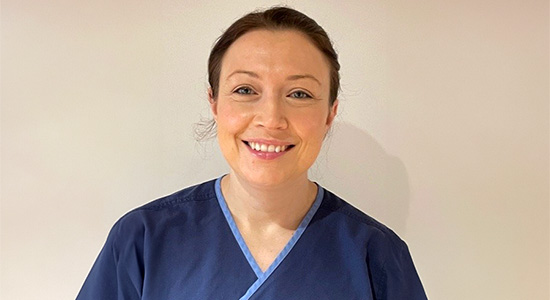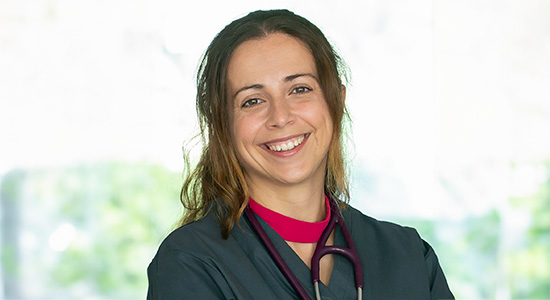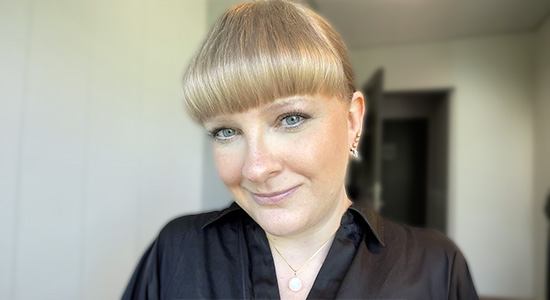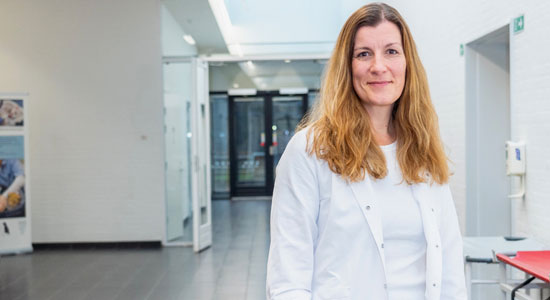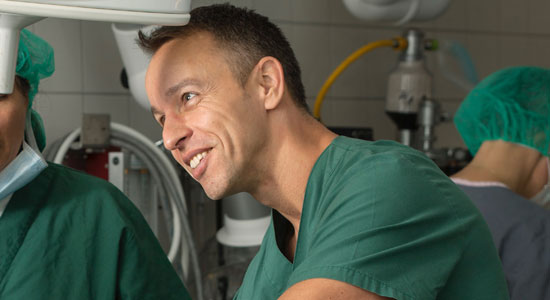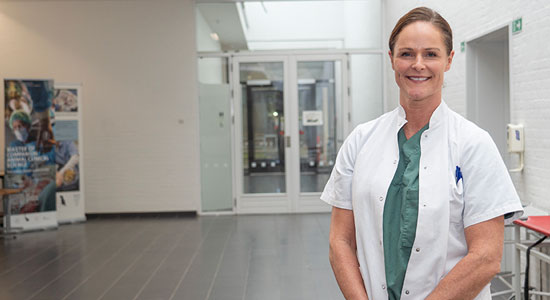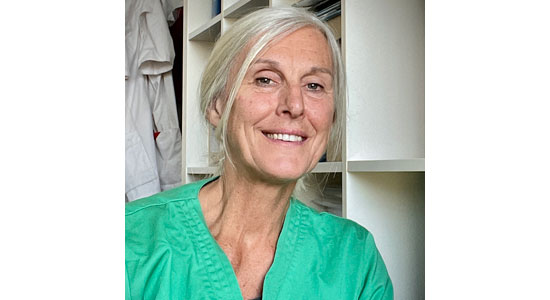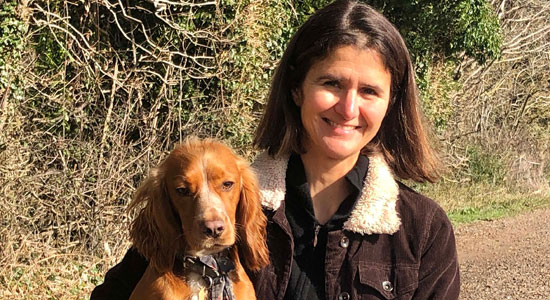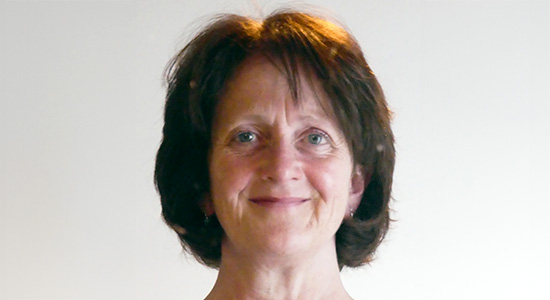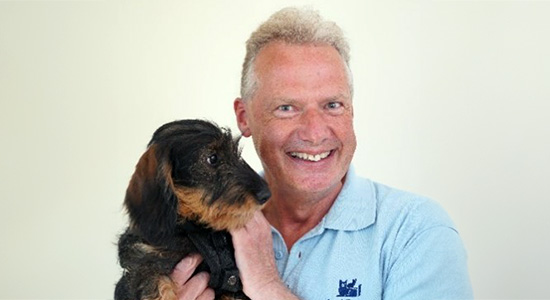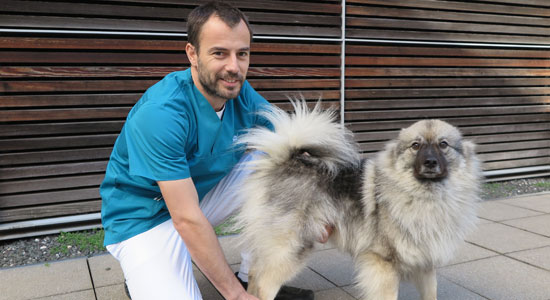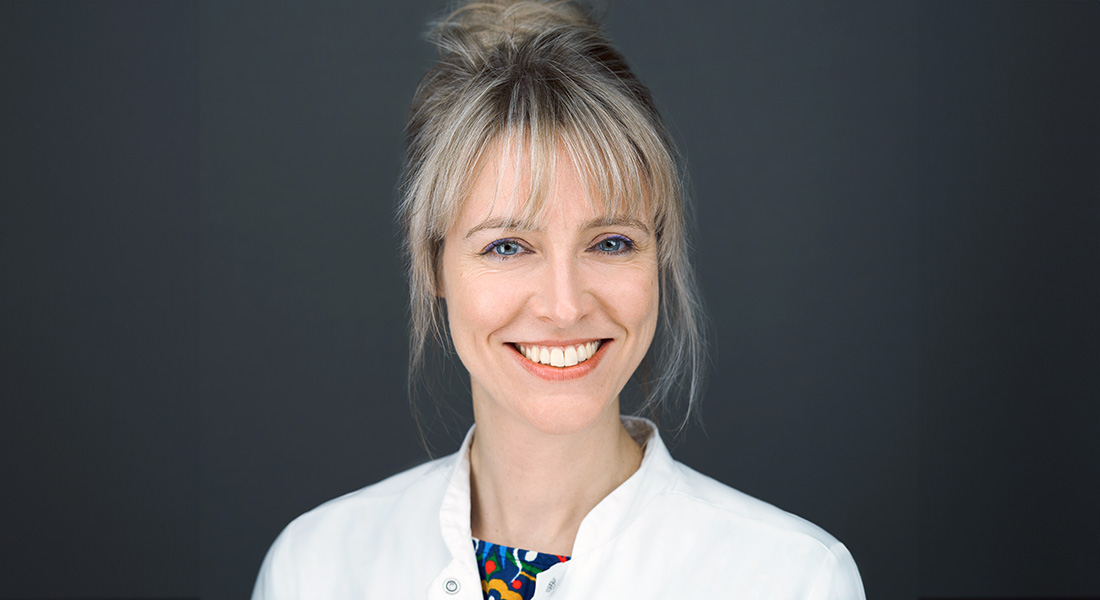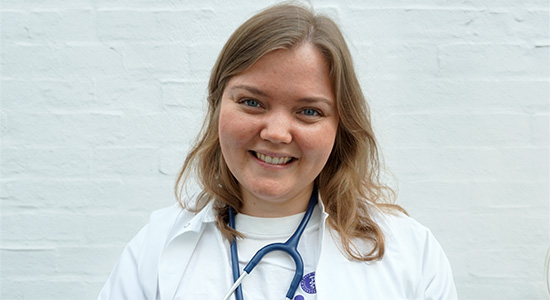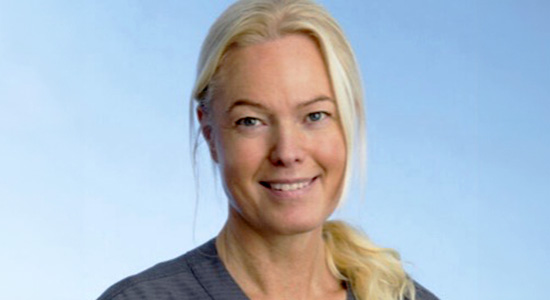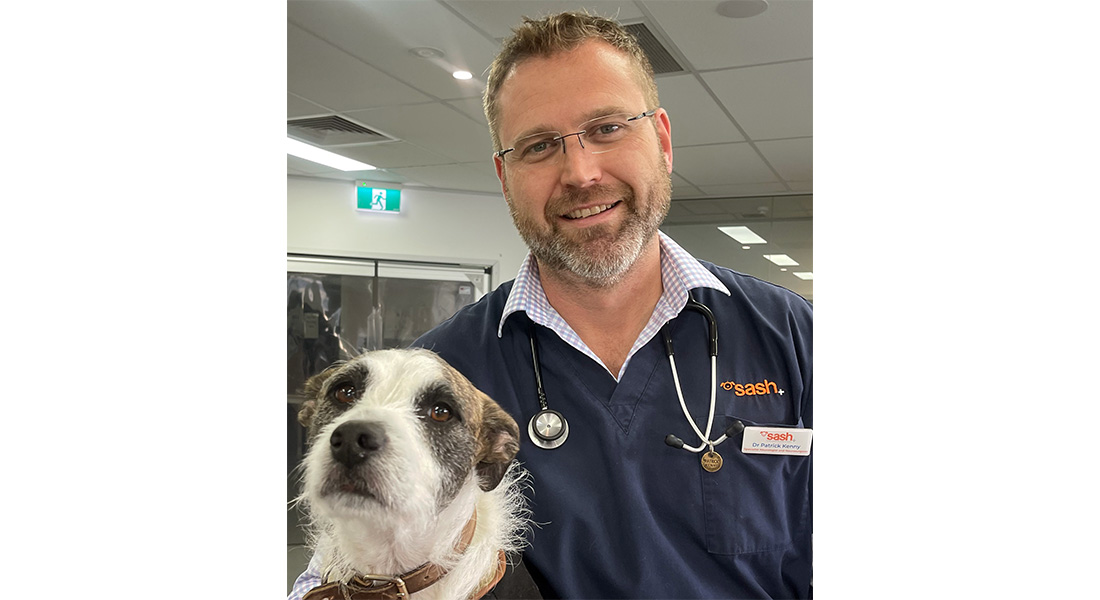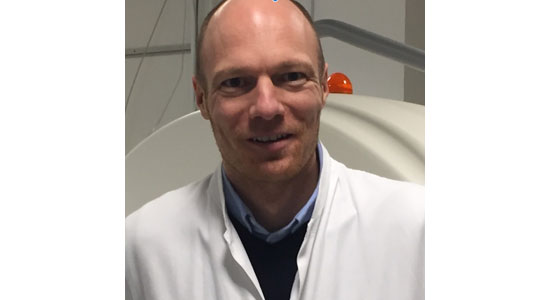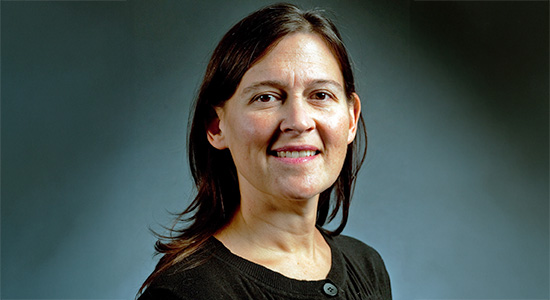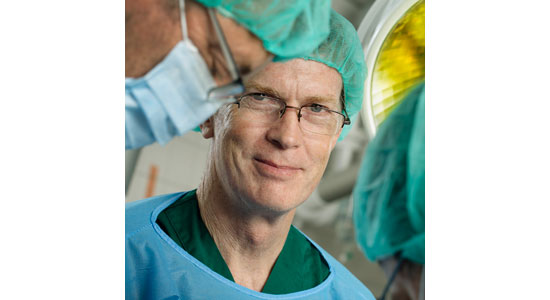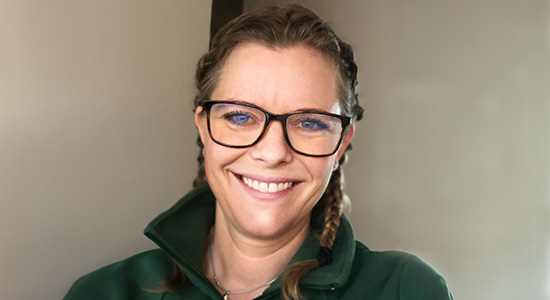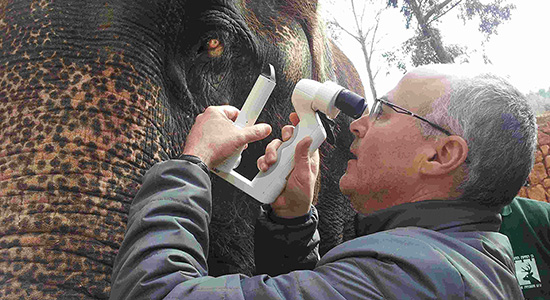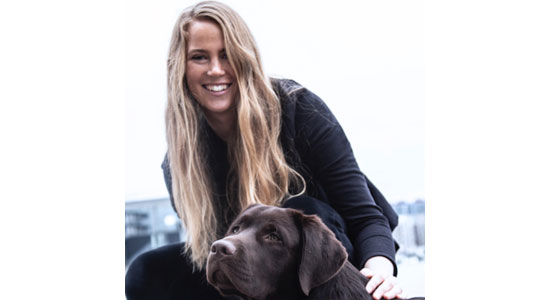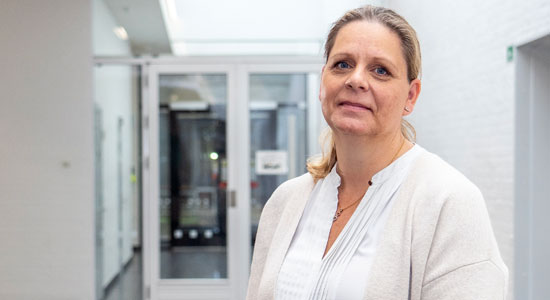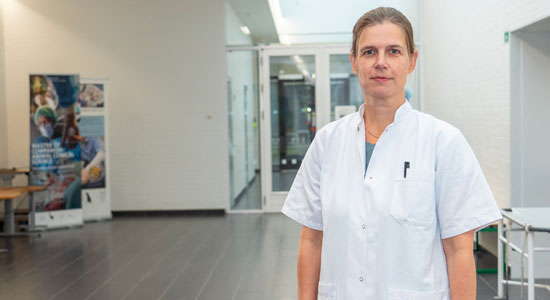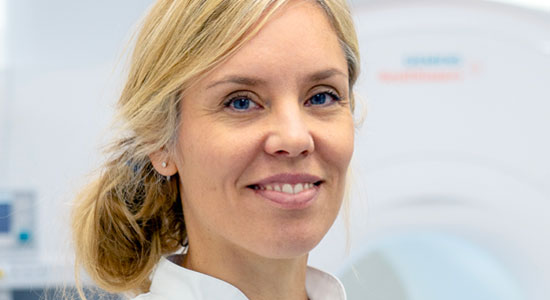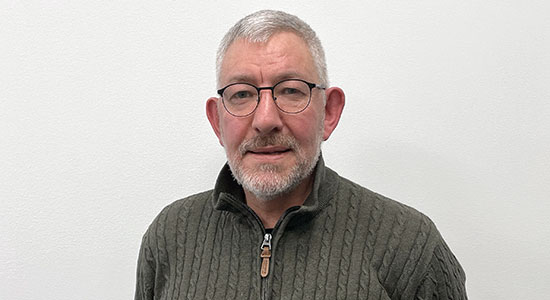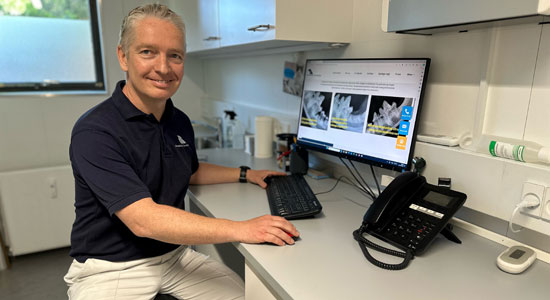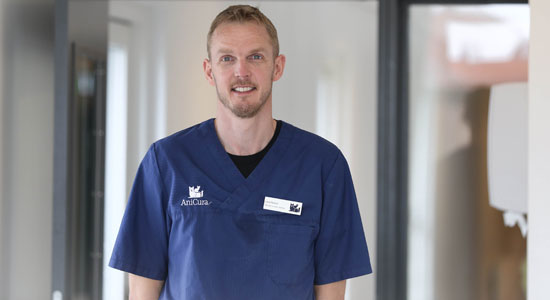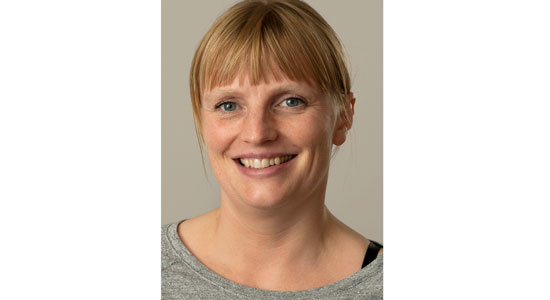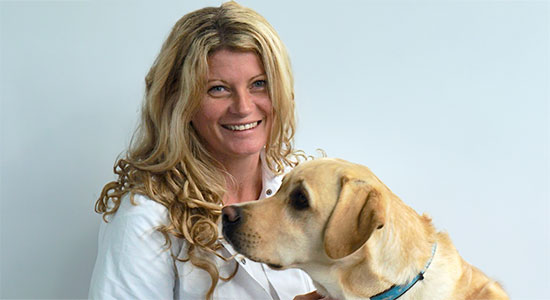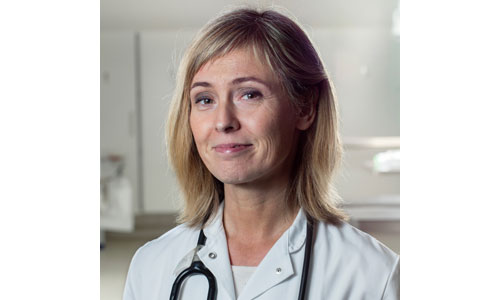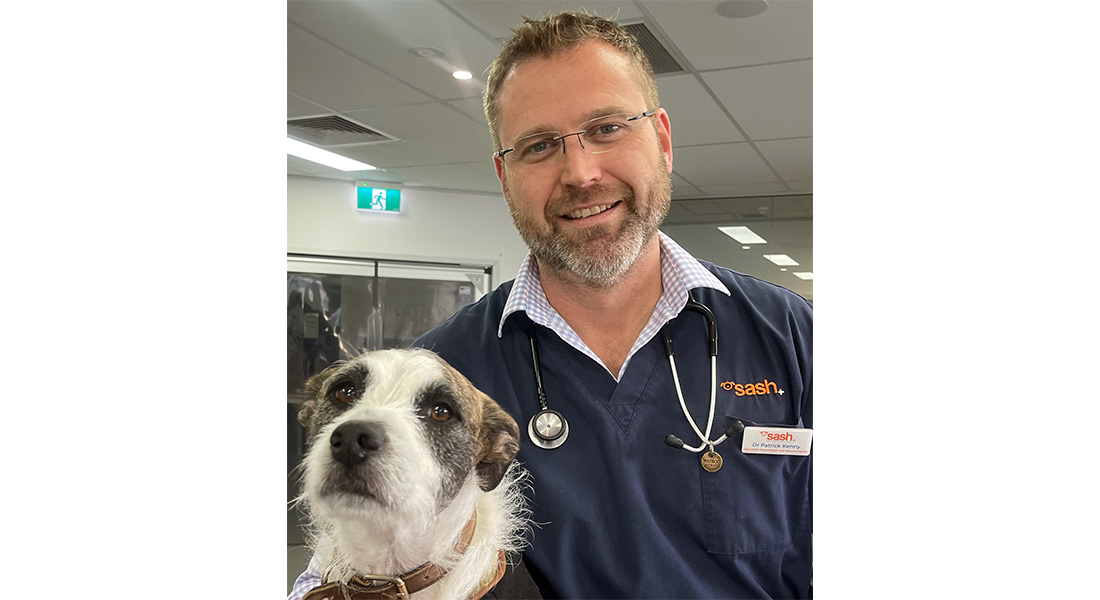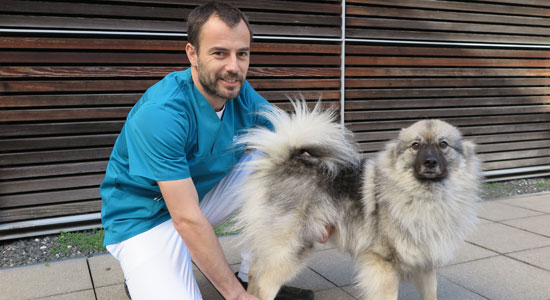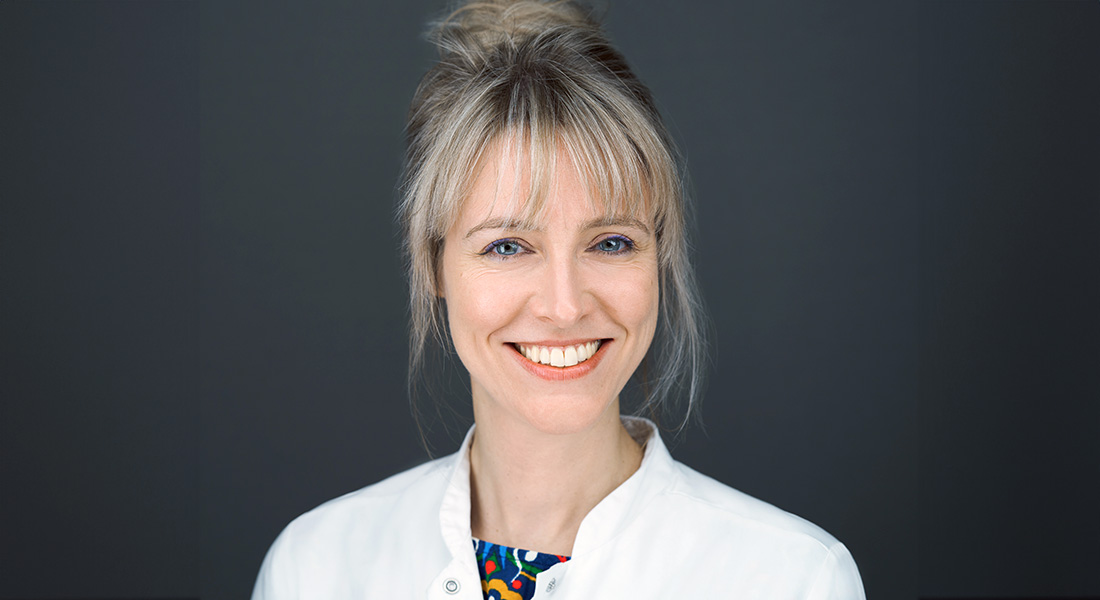-
INTERNAL MEDICINE
Advance your skills in diagnosing and treating complex multisystem medical conditions
-
CARDIOLOGY
Gain expert cardiology knowledge and skills for referral clinical settings
-
NEUROLOGY
Obtain expertise and advanced knowledge in neurological diseases in companion animals
-
ONCOLOGY
Achieve specialised knowledge and skills in companion animal oncology
-
SURGERY
Gain expert skills in specialised companion animal surgery
-
DERMATOLOGY
Excel in companion animal dermatology diagnostic and therapeutic techniques
-
ODONTOLOGY
Acquire expert skills in dental, maxillofacial and oral surgery for instant implementation
-
OPHTHALMOLOGY
Obtain expertise in diagnostics, treatments, and surgical techniques in ophthalmology
Overview
Who is it for?
The Master of Companion Animal Clinical Science is a continuing education programme for veterinarians who is seeking advanced training and specialisation in companion animal clinical practice.
Key benefits
- Expertise to deliver cutting-edge treatments to your patients.
- Ability to translate complex patient data into disease diagnostics, treatment plans, and clinical decision-making.
- Pre-approved courses to support your specialist training.

The Master has given me a more detailed perspective on my practise through deep talks and discussion with fellow students, which has made an incredible impact on the treatment and care I provide to my patients.
The Master of Companion Animal Clinical Science comprises core courses, advanced courses and the Master's project, with a total of 60 ECTS credits.
The core courses provide the essential intermediate level (post-graduate level 7) of clinical skills and competencies and establish the foundation for the advanced courses. While they are integral to the advanced courses, you can choose to complete these core courses independently without enrolling in the subsequent advanced courses.
There are two programme stuctures as presented below. All specialisation tracks follow structure 1, except surgery which follows structure 2.
| Structure 1 | ||
|---|---|---|
| Core courses 30 ECTS |
Advanced courses 18 ECTS |
Master's project 12 ECTS |
| Year 1-2 | Year 3-4 | |
|
4 core courses |
INTERNAL MEDICINE | Master's Project |
| CARDIOLOGY | ||
| DERMATOLOGY | ||
| NEUROLOGY | ||
| ODONTOLOGY | ||
| ONCOLOGY | ||
| OPHTHALMOLOGY | ||
| Structure 2 | ||
|---|---|---|
| Core courses 30 ECTS |
Advanced courses 18 ECTS |
Master's project 12 ECTS |
| Year 1-2 | Year 3-4 | |
|
5 core courses |
SURGERY | Master's Project |
Hands-on learning
The Master’s programme emphasises an evidence-based clinically relevant approach to continuing education that is directly applicable to your daily work.
As a Master's student, you will be taught in small groups with substantial practical training. You will gain hands-on experience with new techniques and best practice methods.
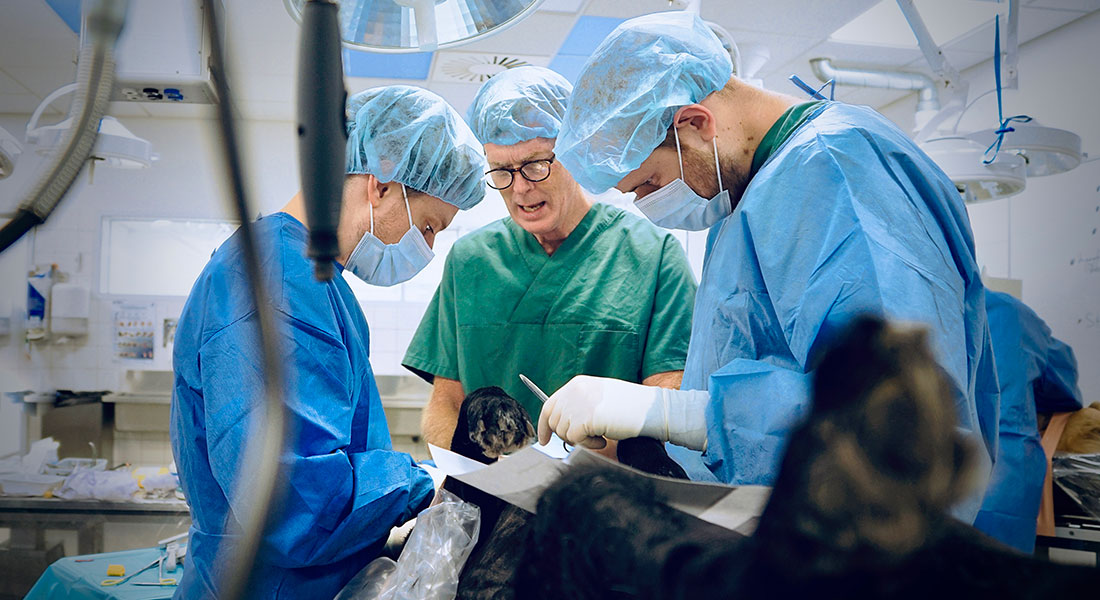
Accreditation
The Master's programme
The Master of Companion Animal Clinical Science is accredited by The Danish Accreditation Institution (ACE Denmark) and is subject to continuous quality assurance processes by the University of Copenhagen.
Core courses
All core courses are accredited by Veterinary Continuing Education in Europe (VetCEE).

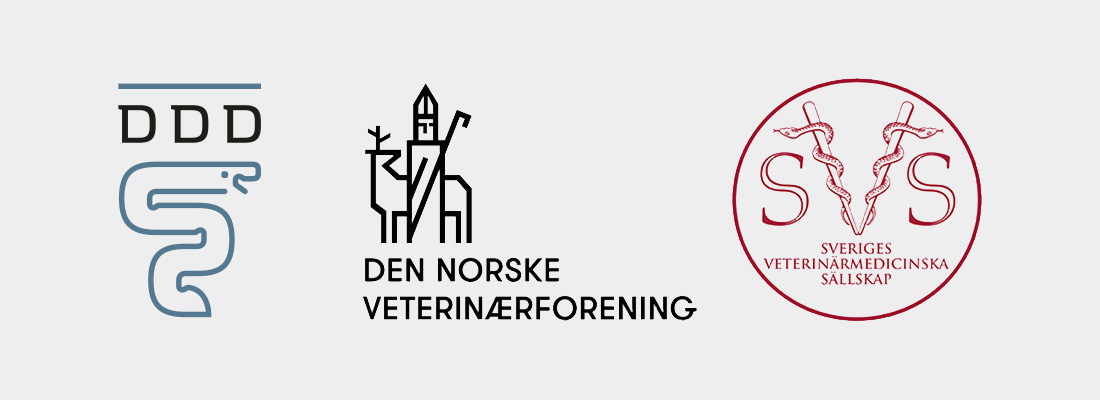
The Master's programme
Core courses, advanced courses and Master's Project are collectively approved as part of the credentials towards the Danish Veterinary Specialist (Specialdyrlæge).
Core courses
As a member of the Danish Veterinary Association, you can apply for a Danish Certificate in Small Animal Diseases (Fagdyrlæge) upon completing the core courses in all specialisation tracks, except those in the Surgery track.
According to national standards, selective courses are pre-approved by the Swedish and Norwegian veterinary associations towards the qualification as a veterinary specialist in companion animal diseases.
After completion of the core courses in the surgery specialisation you will automatically obtain "European Certificate, Companion Animal Surgery".
Advanced courses
Selective advanced courses have been pre-approved by the Swedish and Norwegian veterinary associations for veterinary specialist certification in a specific clinical field of companion animal science.
Read more about the pre-approval of core and advanced courses in each specialisation:

Partners
AniCura

The surgery specialisation is offered in collaboration with AniCura AB.
The partnership with AniCura aims to advance research-based veterinary care, elevate professional standards and foster specialisation in companion animal surgery. The goal is to improve the quality of care for companion animals and their families by training highly specialised professionals.
The Danish Veterinary Association

Master of Companion Animal Clinical Science is developed in close collaboration with The Danish Veterinary Association (DVA). The partnership is founded on years of shared experience with offering continuing education and training for veterinarians.
The goal of the partnership is to offer continuing education and training that builds on the latest research and meets small animal practitioners need for practice related training.
Head of studies
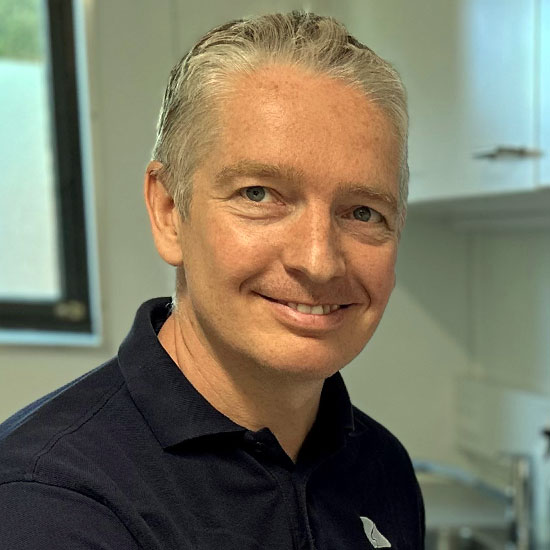
The Master's programme has refined my ability to determine the most effective methods and treatments for each patient.
Testimonials
| 2025 |
Karin Elisabet Nyman & Anna Jidhage”Evaluation of leukocyte identification in four different hematology instruments in whole blood samples from dogs and cats with presence of band neutrophils in the blood smear." Abstract not public. |
Nana Dupont”Pyelonephritis in 57 dogs and 57 cats: A retrospective study on clinical signs, clinicopathologic and ultrasonographic findings, urine pathogens, treatment and outcome.” Abstract not public. |
|
Elin Durhuus, Maren Holmboe Berg & Laura Pedersen"Immune-Mediated Hemolytic Anemia - Investigation of distribution and outcome in dogs at Danish referral hospitals." Abstract not public. |
|
| 2024 |
Anne Jørgensen & Janne Olsen"Antiviral Treatment of Feline Infectious Peritonitis with Nucleoside Analogues: A Scoping review" |
| 2023 |
Vibeke Løvgreen Lassen"The dream of a job in clinical practice - a comparative study of veterinary students' expectations to a job in clinical practice and postgraduate veterinarians' experiences from the real world." |
| 2022 |
Carina Braad Arvidsson"Fecal microbiota transplantation in dogs with acute diarrhea and chronic enteropathy - a scoping review." Abstract not public. |
Lars Knudsen Granly"Evaluation of Multidetector Computer Tomographic arthrography of the canine stifle - Diagnostic accuracy of detecting medial meniscal injury." Abstract not public. |
|
Jenny Nilsson"Fecal microbiota transplantation in dogs with acute diarrhea and chronic enteropathy - a scoping review." Abstract not public. |
|
Vasiliki Soufi"Evaluating the evidence of the effect of raw meat diets (B.A.R.F.) on dog and cat health, immune and metabolic status, a scoping review." Abstract not public. |
|
Ingvild Bjønnes Johannesen"Dose interval and treatment regime for trilostane treatment in dogs with hyperadrenocorticism: A scoping review." Abstract not public. |
|
Mette Malmstedt Bindslev"Efficiency and safety of pharmaceutical treatment of chronic pain in dogs or cats with chronic kidney disease (CKD). A scoping review to inform decision making in clinical practice." |
|
| 2020 |
Helle Berg"Effect of specific non-antibiotics in treatment and prevention of bacterial lower urinary tract infections in dogs: A systemic review." Abstract not public. |
Pia Cecilie Ammitzbøll Andersen"Canine Sepsis – A Scoping Review." Abstract not public. |
|
Peter Spanner Kristensen"Immunomodulatory and Immunosuppressive Drug Protocols in the Treatment of Canine Primary Immune-mediated Thrombocytopenia: A Scoping Review." |
|
Stefanie Mie Traberg"Scoping review of serum and fecal biomarkers in cats with chronic enteropathy." Abstract not public. |
|
Astrid Bjørg Lund"Oral essential fatty acids as a component of therapy for canine atopic dermatitis." Abstract not public. |
|
Anne-Marie Løje"Felin immunmedieret hæmolytisk anæmi (IMHA)." |
|
Kari-Anne Bjørnkjær-Nielsen"Corticosteroid treatment for acute/acute-on-chronic canine pancreatitis - a scoping review" |
|
| 2018 |
Anne Marie Fog-Larsen”Characterization of Alopecia X across breeds. A systematic review" |
Ásdís Linda Sverrisdóttir“What is the diagnostic usefulness of the Coombs' test for Immune Mediated Hemolytic Anemia in dogs” |
|
Tine Bondo“Evidence based medicine regarding SDMA as an early biomarker of chronic kidney disease in cats”. |
|
| 2017 |
Maria Topholm Flørnæs"Evidence-based treatment of Feline Idiopathic Cystitis - a systematic review." Abstract not public. |
Anders Jensen"Evidence Based medicine concerning clinical effects of Probiotics in treatment or prevention of gastrointestinal diseases in dogs." The thesis was published in the Journal of Veterinary Internal Medicine in 2019. |
|
| 2025 |
Ditlev Vølund"A Narrative Review of Techniques for Surgical Management of Canine and Feline Urolithiasis." |
Lara Katharina Keber & Marie-Kristin Panagiotopoulos"A Systematic Review of Surgical Treatment Alone versus Combined Surgical Treatment and Chemotherapy on Survival Time, Disease-Free Intervals, or Recurrence Rates in Dogs with Mast Cell Neoplasia." |
|
Doroty Maria Rizzo & Flavia Serafini"In Hyperthyroid cats, is thyroidectomy compared to medical therapy a better option in terms of success rate, complications and survival time? A systematic review." |
|
Aukse Janina Caraite"Mandibulectomy and Maxillectomy in Dogs and Cats: A Scoping Review of Postoperative Complications and Quality of Life." |
|
Peter Elkjær Janns & Emilie Ghajarieh Hvilsom"Surgical treatment of canine perineal hernia: A systematic review comparing complications of internal obturator muscle transposition and synthetic mesh techniques." |
|
Lieke Lansdaal & Nanda Kleinjan"Comparative evaluation of the transoral bulla osteotomy and the per-endoscopic transtympanic procedure versus the ventral bulla osteotomy in feline middle ear surgery: a study of surgery time and complication rates." |
|
Lina Ulrika Falk Theut"Postoperative complications following mastectomy in cats: A scoping review." Abstract not public. |
|
| 2024 |
Christian John Pedersen"Treatment of Gastric Dilation and Volvulus: A systematic review and a cohort from Anicura Københavns Dyrehospital investigating the use of postponed exploratory celiotomy and gastropexy as definitive treatment for gastric dilation and volvulus." |
Linn Baisgård, Vanessa van Heesewijck & Claudia Nyberg"Life expectancy in dogs with splenic HSA treated with surgery alone or in combination with medical therapy – a systematic review." |
|
| 2022 |
Michael Butler"Tibial Osteotomies in treating small breed dogs with cranial cruciate ligament disease, A systematic review.” Abstract not public. |
Louise Nicolet Frost Bennetsen"Pain assessment in cats – a scoping review." Abstract not public. |
|
Lasse Hørlyck"Canine cervical disc extrusion - standard ventral slot procedure or conservative treatment. A scoping review." Abstract not public. |
|
Michael Kolind Schaap"Canine cervical disc extrusion - standard ventral slot procedure or conservative treatment. A scoping review." Abstract not public. |
|
| 2021 |
Alexandra Vilen"Point of care tests (POCTs) as a diagnostic tool in dogs with septic arthritis: a scoping review." Abstract not public. |
Dorthe Hansen"A double blinded study to evaluate the influence of estrus on the grade of medial patellar luxation in female small breed dogs." Abstract not public. |
|
| 2019 |
Katarina Sandelin”Can neutraceuticals reduce pain in dogs and cats with degenerative joint disease – a systematic review." Abstract not public. |
| 2018 |
Troels Dalgaard”Har tæver der steriliseres ved kikkertoperation færre smerter, og kommer de sig hurtigere end tæver, der steriliseres traditionelt." Abstract not public. |
Peter Weis”Sene menisk skader efter korsbåndsskader: bør menisker inspiceres og behandles i forbindelse med primær kirurgisk behandling af korsbåndsskade.” Abstract not public. |
|
Vivian Helgesen Westby"Neoureterostomi med ligering av distale uretersegment." Abstract not public. |
|
| 2017 |
Troels Dalgaard"Detection of pulmonary metastases by Computed Tomography and Conventional Radiology." Abstract not public. |
Christina H. Gulløv“The Effect of Early Neutering on Lifespan in Dogs - A Systematic Review." Abstract not public. |
|
Lars Langerhuus"Proportion recovery and times to ambulation Proportion recovery and times to ambulation for non-ambulatory dogs with thoracolumbar disc extrusions treated with hemilaminectomy or conservative treatment: A systematic review and meta-analysis of case-series studies." |
|
| 2015 |
Siri Sedberg"Systematisk review – Brakycephalt syndrom." Abstract not public. |
Ken Lindeblad"A systematic review of meniscal injury diagnosis in dogs." |
|
Gert Jarn Pedersen"Ulnar osteotomy for premature closure of the distal ulnar growth plate: how and when?" |
|
Irene Krøjer Hansen"Does the perioperative use of antibiotics reduce the occurrence of postoperative surgical site infections in dogs and cats? A Minireview." |
| 2024 |
Patrícia Mayara Pontalti"Comparison of Conventional Echocardiographic Variables in the Assessment of Congestive Heart Failure in Dogs with Myxomatous Mitral Valve Disease: A Literature Review". |
| 2022 |
Jens Filrup"Assessment of Left Atrial Size and Function by Two-Dimensional Speckle Tracking Echocardiography in English Bull Terriers". Abstract not public. |
Katrine Lindegaard”Echocardiographic Assessment of Left Ventricular Systolic Function in Dogs”. |
|
| 2020 |
Rune Enghoff Petersen"Lungeultralyd i Smådyrspraksis." |
Inge Vogt Engeland"Assessment of regurgitation severity in dogs with degenerative mitral valve disease." Abstract not public. |
| 2025 |
Sophie Björklund"Feline Immune-mediated polyneuropathy: A practice focused revie.” |
Maja Allpass & Michelle Lindeholm Pedersen"Platelet indices and nucleic acid containing unit count in dogs with steroid-responsive meningitis-arteritis.” |
| 2023 |
Jacob Coakley Meyer"Prevalence of periodontitis in Danish client owned dogs - A retrospective study.” Abstract not public. |
| 2024 |
Linn Baisgård, Vanessa van Heesewijck & Claudia Nyberg"Life expectancy in dogs with splenic HSA treated with surgery alone or in combination with medical therapy - a systematic review." |
| 2023 |
Pernille Holst"Long-term effect and safety of calcium electroporation in canine superficial solid malignant tumors." Abstract not public. |
| 2021 |
Eva Aagaard Salling"Testicular tumor in dogs. Does cryptorchidism increase the risk of testicular neoplasia in dogs. A systematic review." Abstract not public. |
Martine Lund Ziener"Quality of Life after Mandibulectomy or maxilectomy in dogs with oral tumours." Abstract not public. |
|
Marianne Mandelin"The use of CT or cytology as presurgical diagnostic tools in dogs with splenic masses, diffuse splenomegaly or abdominal splenic echogenicity identified on ultrasound - a scoping review." Abstract not public. |
|
| 2020 |
Michael Wessel"Surgical Margins in Canine Mast Cell Tumors - A systematic Review." |
| 2019 |
Jacob Kvesel Mortensen"Prognostic value of surgical technique in treatment of mammary gland tumours in female dogs - a scoping review." Abstract not public. |
Astrid Birch Kjærgaard"Systematic review of receptor tyrosin kinase inhibitors for canine neoplasia other than mast cell tumors." Abstract not public. |
|
Vibeke Fosse"Fluorescence image guided cancer surgery in companion animals: a scoping review on veterinary applications and the comparative model for translation." Abstract not public. |
| 2022 |
Louise Baadsgaard Bruun & Tommy Hardon"The use of a “horizontal centrifugation protocol” to prepare autologous platelet-rich fibrin membranes for corneal reconstruction surgery in dogs with complicated corneal ulcerations: A case series." The thesis was published in Veterinary Ophthalmology (et Ophthalmol. 2023;00:1-15. doi:10.1111/vop.13148). |
Mogens Perregaard"Evaluation of the bacterial microflora and the cytological findings of the conjunctival sac in dogs with acute conjunctivitis and healthy dogs." Abstract not public. |
|
Thomas Overgaard Larsen"Evaluation of the bacterial microflora and the cytological findings of the conjunctival sac in dogs with acute conjunctivitis and healthy dogs." Abstract not public. |
|
Søren Nyhuus Rasch"Ametropia and ocular health status in Danish Broholmer dogs." |
|
Mette Nielsen"Ametropia and ocular health status in Danish Broholmer dogs." |
| 2023 |
Anna Müller"A survey of testicular texture in canine ultrasound images." Abstract not public. |
| 2022 |
Lars Knudsen Granly"Evaluation of Multidetector Computer Tomographic arthrography of the canine stifle - Diagnostic accuracy of detecting medial meniscal injury." Abstract not public. |
Master's programme:
EU, EEA or Swiss citizens: From 254,000 DKK.
Non-EU, non-EEA, or non-Swiss citizens: From 296,400 DKK.
The total programme tuition fee depends on your chosen specialisation. Detailed fees for each specialisation are provided in the specialisation presentations:
Citizens from the EU, EEA, and Switzerland are eligible for reduced tuition fees according to EU legislation.
The tuition fee is paid per course and is charged once per the semester.
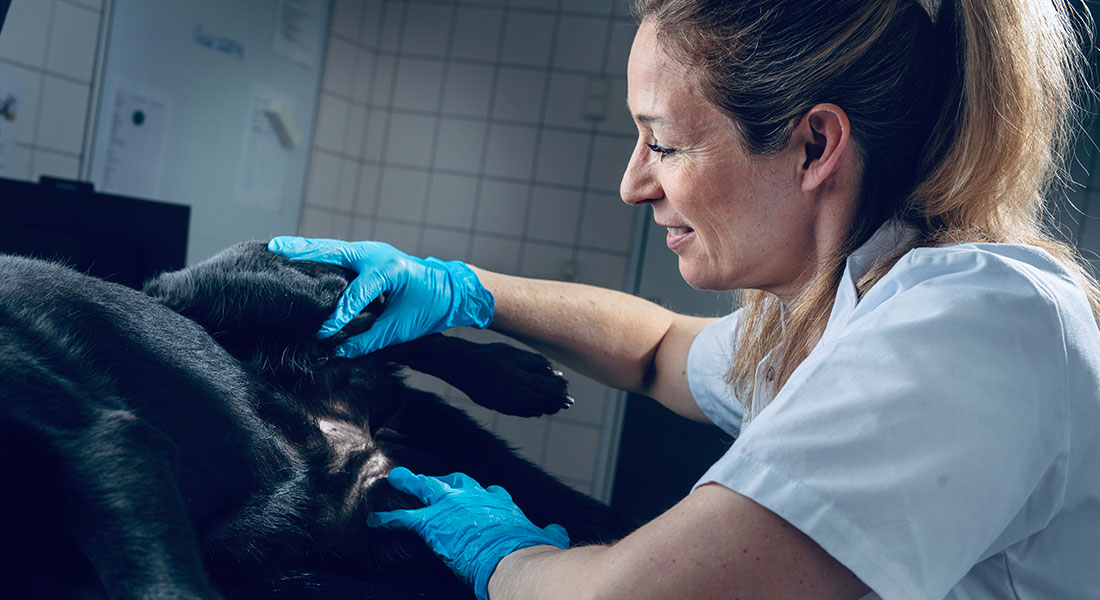
Application period:
1 October 2026 - 1 May 2027.
The admission is closed. Submit your application from 1 October 2026.
Admission criteria
The programme welcomes new students every other year.
Qualifying degree
You must hold a degree in Veterinary Medicine (Doctor of Veterinary Medicine – DVM).
The qualifying degree must be obtained from a recognised higher education institution in Denmark or abroad.
Work experience
After completing the qualifying degree, you must have at least 2 years of relevant work experience in companion animal practice.
English proficiency
You must have a standard of English equivalent to level B in Danish secondary education.
Collect documentation for your application
An official certified diploma and transcript of academic records, with stamp and signature from your home university.
In case the original documents are not available in one of the following languages: Danish, Swedish, Norwegian, English, German or French, you are required to upload a certified translation with the copy of the original document.
A CV with your relevant work experiences which clearly states workplaces, specific work periods and job responsibilities.
You can document your English language proficiency in one of the following ways:
Native English language
Native English speakers from the USA, Canada, Australia, New Zealand, UK or Ireland may submit a copy of the page of their passport that has their photograph as proof.
Diploma from a Nordic university
Nordic applicants can demonstrate their English proficiency by submitting a certified copy of a high school diploma proving that they have passed English level B or by submitting a certified copy of a bachelor's or Master’s diploma from a Nordic university.
Degree from an English speaking country
Applicants who have earned a bachelor’s or Master’s degree from the USA, Canada, Australia, New Zealand, UK or Ireland can demonstrate their English proficiency by submitting a certified copy of their degree certificate if their degree was taught in English. A semester or year spent on a student exchange programme is not sufficient.
English language proficiency test
Applicants can demonstrate their English proficiency if they have passed a recognised English language proficiency test with an adequate score. We accept the following tests:
|
Name of test |
Minimum score |
Information required for online check of test |
|
IETLS (academic) IELTS Home Edition |
6.5 (overall test score) 6.5 (overall test score) Only overall score will be considered. |
TRF Number (Test Report Form Number) |
|
TOEFL
(MyBest Scores are not accepted) |
83 83 560 |
Registration number |
|
Cambridge Advanced (CAE) |
Passed at level C1 or C2 |
ID-number and Secret Number |
|
Cambridge Proficiency |
Passed at level C1 or C2 |
ID-number and Secret Number |
ELTS and TOEFL tests older than 2 years will not be accepted (counted from the programme application deadline). The Cambridge Assessment English may have been gained at any time.
A copy of your passport (photo page) is required for non-Danish citizens. If you are a non-EU/EEA citizen with a permanent Danish residence permit, a copy of this permit must be uploaded.
Please check whether you require a visa to enter Denmark by consulting the list of countries requiring visas.
If admitted to the program and in need of a visa, we will support you in the application process. Kindly be informed that the visa application can commence only upon receipt of the initial tuition fee installment.
Please be aware that acceptance into a part-time study program does not entitle you to a residence permit in Denmark. For additional details, please contact the Danish Immigration Service.
Selection criteria
Maximum 30 students can be admitted to the Master of Companion Animal Clinical Science.
Maximum 24 students can be admitted on the Surgery track of Master of Companion Animal Clinical Science.
The admission committee offers eligible students admission to the programme based on a first-come, first-served basis.
Priority is given to students admitted on Master of Companion Animal Clinical Science. Once the enrolled students have been admitted to individual courses, the remaining seats are distributed on a first-come, first-served basis.
Please note, not all courses are open for individual course registration.
Direct admission to advanced courses
You can start directly on the advanced courses if you fulfill the admission criteria stated above and one of these certifications in Companion Animal Diseases from Denmark, Finland, Norway, or Sweden:
- DVA in Small Animal Diseases (Certificeret fagdyrlæge i sygdomme hos hunde og katte)
- Finnish specialist in diseases of dogs and cats (Pieneläinsairauksien erikoiseläinlääkäri)
- Norwegian specialist in diseases of dogs and cats (Specialisering i veterinærmedisin, spesialitet smådyr)
- Swedish specialist in diseases of dogs and cats (Steg 1)
Documentation
To apply for admission on the specialisation of your choice, you must submit documentation for your certification in companion animal diseases. Danish and Norwegian applicants, please note that your certification must be up to date. The Finnish and Swedish Veterinary Associations do not have a recertification practice. The admission committee will evaluate if your competences are still up to date.
Application process step by step
✔ Ensure you meet the admission criteria.
✔ Gather required documents.
✔ Complete the application form.
✔ Await assessment of your application.
✔ Check your registered email for results.
You will be notified whether you are successful by email no later than 6 weeks after submitting your application.
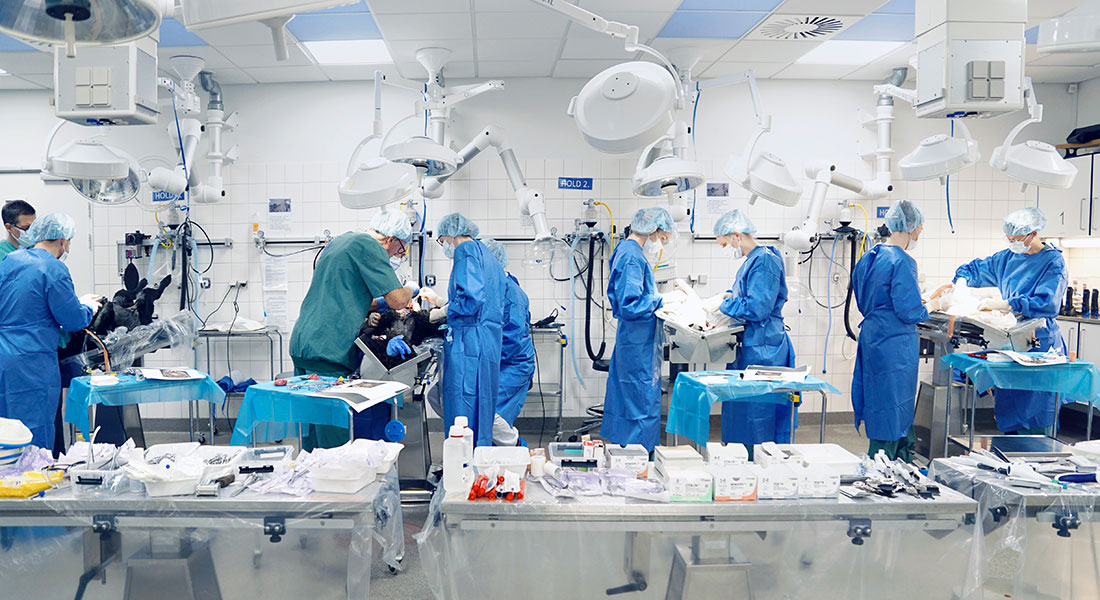
Admission
Christine Gulstad
Study Administration Officer
lifelonglearning@adm.ku.dk
Tel.: +45 35 32 12 73
Academic content
Pernille Holst
Head of Studies
ph@sund.ku.dk
Master of Companion Animal Clinical Science
Continuing and Lifelong Learning
University of Copenhagen
Krystalgade 25
1172 Copenhagen K - Denmark

